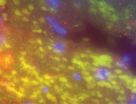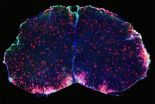(Press-News.org) The government is putting pressure on commissioners, and in turn general practitioners, to make more diagnoses of dementia, but no analysis has been done to assess the harm that these targets could cause.
Dr Martin Brunet, a GP from Surrey, says that "medicine depends on a fundamental, unspoken agreement between patients and doctors […] the only factor influencing the decision to diagnose should be the best interests of patients". He adds that the idea of doctors being motivated by self interest is "abhorrent and undermines the basis of the relationship".
He says that diagnosis can bring "great harm if incorrect" but the setting of target rates for diagnoses has gone "largely unchallenged despite its potential to lead to substantial harm", adding that clinical commissioning groups will be "desperate" to remove themselves from the list of worst performing CCGs for dementia diagnosis.
Dr Brunet is concerned that there has, so far, been no analysis of the potential harms in setting targets for diagnoses and fears that the "needs of patients are made secondary to the requirement to fulfil quotas".
In a concluding statement, Dr Brunet says that dementia is a "big business" and there are many vested interests that "stand to benefit from a rise in the number of diagnoses". He says that if the validity of these strategies is not questioned, there is the danger of this spreading into other areas of medicines.
He concludes that "diagnosis must always belong only to the patient" and that an "urgent debate is needed before this gets out of hand".
INFORMATION: END
New dementia diagnosis targets will lead to overdiagnosis
In a personal view published today, a general practitioner says that the new targets for diagnosing dementia will lead to more harm than good
2014-04-02
ELSE PRESS RELEASES FROM THIS DATE:
The Sun's campaign may actually harm women
2014-04-02
The "check 'em Tuesday" campaign is a weekly call for women to examine their breasts. Readers are asked to send in photos to prove compliance and can even sign up for a text message reminder.
But Dr McCartney argues that teaching women to examine their breasts regularly "has been shown not to reduce deaths from breast cancer and actually increases the chances of a benign biopsy result." She says it is "unfair to tell women that regular self examination will save their lives when it may simply incur anxiety and have the potential to harm."
She points out that this is ...
Screening for liver cancer in patients with cirrhosis
2014-04-02
In a systematic review and meta-analysis of 47 studies with 15,158 patients, Amit Singal (University of Texas Southwestern Medical Center) and colleagues found that patients with cirrhosis who underwent surveillance (via liver ultrasound with or without measurement of serum alpha fetoprotein) for hepatocellular carcinoma (HCC) had cancers detected at an earlier stage, were more likely to receive curative instead of palliative treatment, and had longer survival. Across all the studies, the pooled 3-year survival rate was 50.8% among the 4735 patients who underwent HCC surveillance, ...
Heart attack gene, MRP-14, triggers blood clot formation
2014-04-02
Right now, options are limited for preventing heart attacks. However, the day may come when treatments target the heart attack gene, myeloid related protein-14 (MRP-14, also known as S100A9) and defang its ability to produce heart attack-inducing blood clots, a process referred to as thrombosis.
Scientists at Case Western Reserve School of Medicine and University Hospitals Case Medical Center have reached a groundbreaking milestone toward this goal. They have studied humans and mice and discovered how MRP-14 generates dangerous clots that could trigger heart attack or ...
Will roe deer persist? Climate change spells disaster for species unable to keep up
2014-04-02
As the climate continues to change, it's unclear to what extent different species will be able to keep pace with altered temperatures and shifted seasons. Living organisms are the survivors of previous environmental changes and might therefore be expected to adapt, but are there limits?
According to research to be published in the Open Access journal PLOS Biology on April 1, some species may be much less able to cope with the effects of climate change than previously thought. The study, by Floriane Plard, Jean-Michel Gaillard, Christophe Bonenfant and colleagues, looked ...
Age-related decline in sleep quality might be reversible
2014-04-02
Sleep is essential for human health. But with increasing age, many people experience a decline in sleep quality, which in turn reduces their quality of life. In a new study publishing April 1 in the Open Access journal PLOS Biology, Scientists at the Max Planck Institute (MPI) for Biology of Ageing in Cologne have investigated the mechanisms by which ageing impairs sleep in the fruit fly. Their findings suggest that age-related sleep decline can be prevented and might even be reversible.
To uncover basic age-related sleep mechanisms, the Max Planck scientists studied the ...
Enhancers serve to restrict potentially dangerous hypermutation to antibody genes
2014-04-02
How B lymphocytes are able to direct mutations to their antibody genes to produce millions of different antibodies has fascinated biologists for decades. A new study publishing in the Open Access journal PLOS Biology on April 1 by Buerstedde and colleagues shows that this process of programed, spatially targeted genome mutation (aka. somatic hypermutation) is controlled by nearby transcription regulatory sequences called enhancers. Enhancers are usually known to control gene transcription, and these antibody enhancers are now shown to also act in marking the antibody genes ...
Going batty for jumping DNA as a cause of species diversity
2014-04-02
The vesper bats are the largest and best-known common family of bats, with more than 400 species spread across the globe, ranking second among mammals in species diversity.
Authors Ray et al., wanted to get at the root cause of this diversity by taking advantage of two vesper bat species whose genomes have recently been sequenced. They speculated that one cause of this diversity might be jumping elements in the genome, called DNA transposons, which are more active and recent in the evolutionary history of this family than any other mammal. Why and how this DNA transposon ...
Likely culprit in spread of colon cancer identified
2014-04-02
New research at Washington University School of Medicine in St. Louis and Vanderbilt University Medical Center in Nashville has implicated a poorly understood protein called PLAC8 in the spread of colon cancer.
While elevated PLAC8 levels were known to be associated with colon cancer, the researchers now have shown that the protein plays an active role in shifting normal cells lining the colon into a state that encourages metastasis.
The work appears April 1 in the Journal of Clinical Investigation.
"We knew levels of this protein are elevated in colon cancer," said ...
Gene therapy improves limb function following spinal cord injury
2014-04-02
Delivering a single injection of a scar-busting gene therapy to the spinal cord of rats following injury promotes the survival of nerve cells and improves hind limb function within weeks, according to a study published April 2 in The Journal of Neuroscience. The findings suggest that, with more confirming research in animals and humans, gene therapy may hold the potential to one day treat people with spinal cord injuries.
The spinal cord is the main channel through which information passes between the brain and the rest of the body. Most spinal cord injuries are caused ...
Mode of action of new multiple sclerosis drug discovered
2014-04-02
This news release is available in German. Just a few short weeks ago, dimethyl fumarate was approved in Europe as a basic therapy for multiple sclerosis. Although its efficacy has been established in clinical studies, its underlying mode of action was still unknown, but scientists from Bad Nauheim's Max Planck Institute for Heart and Lung Research and the University of Lübeck have now managed to decode it. They hope that this knowledge will help them develop more effective therapeutic agents.
Multiple sclerosis (MS) is a chronic inflammatory disease of the central ...
LAST 30 PRESS RELEASES:
Scientists deliver new molecule for getting DNA into cells
Study reveals insights about brain regions linked to OCD, informing potential treatments
Does ocean saltiness influence El Niño?
2026 Young Investigators: ONR celebrates new talent tackling warfighter challenges
Genetics help explain who gets the ‘telltale tingle’ from music, art and literature
Many Americans misunderstand medical aid in dying laws
Researchers publish landmark infectious disease study in ‘Science’
New NSF award supports innovative role-playing game approach to strengthening research security in academia
Kumar named to ACMA Emerging Leaders Program for 2026
AI language models could transform aquatic environmental risk assessment
New isotope tools reveal hidden pathways reshaping the global nitrogen cycle
Study reveals how antibiotic structure controls removal from water using biochar
Why chronic pain lasts longer in women: Immune cells offer clues
Toxic exposure creates epigenetic disease risk over 20 generations
More time spent on social media linked to steroid use intentions among boys and men
New study suggests a “kick it while it’s down” approach to cancer treatment could improve cure rates
Milken Institute, Ann Theodore Foundation launch new grant to support clinical trial for potential sarcoidosis treatment
New strategies boost effectiveness of CAR-NK therapy against cancer
Study: Adolescent cannabis use linked to doubling risk of psychotic and bipolar disorders
Invisible harms: drug-related deaths spike after hurricanes and tropical storms
Adolescent cannabis use and risk of psychotic, bipolar, depressive, and anxiety disorders
Anxiety, depression, and care barriers in adults with intellectual and developmental disabilities
Study: Anxiety, gloom often accompany intellectual deficits
Massage Therapy Foundation awards $300,000 research grant to the University of Denver
Gastrointestinal toxicity linked to targeted cancer therapies in the United States
Countdown to the Bial Award in Biomedicine 2025
Blood marker from dementia research could help track aging across the animal world
Birds change altitude to survive epic journeys across deserts and seas
Here's why you need a backup for the map on your phone
ACS Central Science | Researchers from Insilico Medicine and Lilly publish foundational vision for fully autonomous “Prompt-to-Drug” pharmaceutical R&D
[Press-News.org] New dementia diagnosis targets will lead to overdiagnosisIn a personal view published today, a general practitioner says that the new targets for diagnosing dementia will lead to more harm than good


